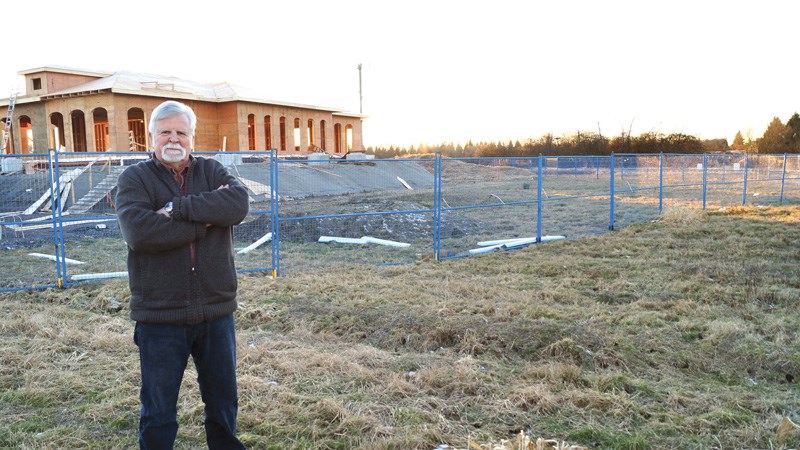Last month the City of Richmond opened public hearings on an issue that has split politicians and residents across the Fraser Valley: how to control speculation on what is already the most expensive farmland in Canada.
In Richmond, debate has been sparked by the construction of megahouses on land protected under the Agricultural Land Reserve (ALR), which includes 150,300 acres across Metro Vancouver and the Fraser Valley.
Richmond council is considering amending its bylaws to limit the maximum size of a house on protected agricultural land, as well as other measures to limit the footprint of new developments on farmland.
A recent study discovered that only half the Metro Vancouver and Fraser Valley land inside the ALR is actively farmed, and that more than 29,000 acres protected as farmland has “no potential for farming.”
That 2016 study, by Vancouver City Savings Credit Union (Vancity) also found that buyers are paying from $150,000 to $350,000 per acre for Metro Vancouver farmland parcels of less than five acres and up to $80,000 per acre for parcels larger than 40 acres.
Vancity said it was “questionable” if farming has financial viability with such land values.
As a comparison, farmland in the rest of Western Canada ranges from $1,000 to $5,000 per acre, according to appraisers. B.C. is the only western province that has no restrictions on foreign ownership of farmland
Richmond does not limit the size of homes on acreage. As a result, mansions larger than 20,000 square feet are being approved by city planners on ALR parcels.
There is a tax advantage to building a house on farmland: if the owner can prove they make a minimum of $2,500 (for parcels between 1.98 and 10 acres) annually from farming they pay lower property taxes.
The committee heard from a number of landowners and developers who expressed concern about building restrictions.
“Don’t punish everyone because new people are building [large] houses,” said Gurdial Badh, who identified himself as a farmer and owner of 120 acres of blueberry fields.
Badh is also a realtor and recently applied to the city to subdivide a 20-acre parcel of farmland. The application was denied, as, according to the city, it would “result in lots with the potential for large single-family dwellings.”
Randy Shuette, president of Twin City Development Group, said he was a long-time resident planning to build a dream home for his family. He argued limiting house sizes would diminish the value of his recently purchased farmland in Richmond. Schuette said he intends to farm the land with his four children.
Another speaker said it was important to allow large homes for the purpose of housing multi-generational families, who have long farmed in Richmond.
But other residents voiced concern about land speculation and the loss of productive farmland.
“Let’s be clear. Whatever we do, there will be people that aren’t happy,” said Coun. Linda McPhail, chair of the planning committee, which accepted a staff report that sets out draft bylaws that bring Richmond in line with nearby municipalities.
Neighbouring Delta, for example, limits houses to 3,552 square feet on lots that are smaller than 20 acres. •
- Graeme Wood is a reporter with the Richmond News



